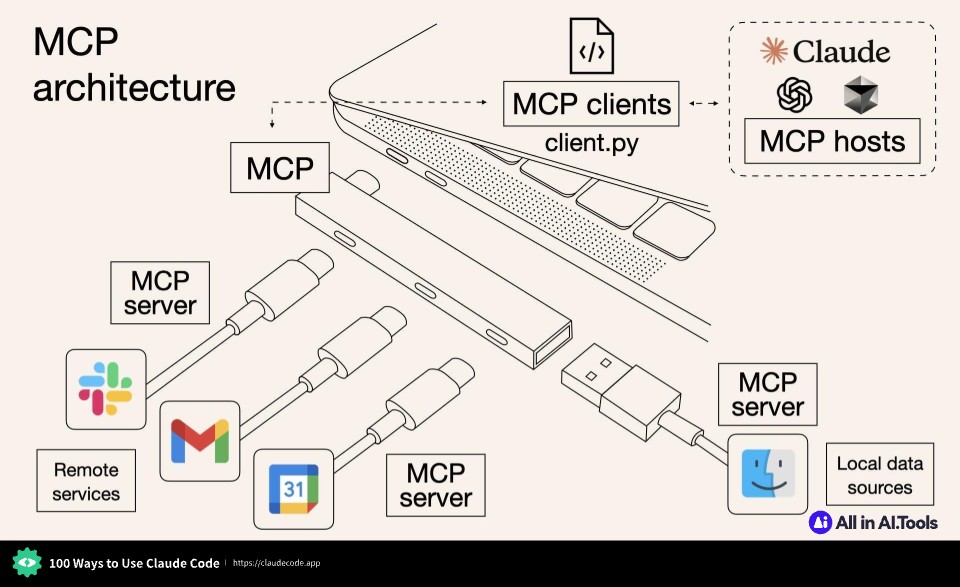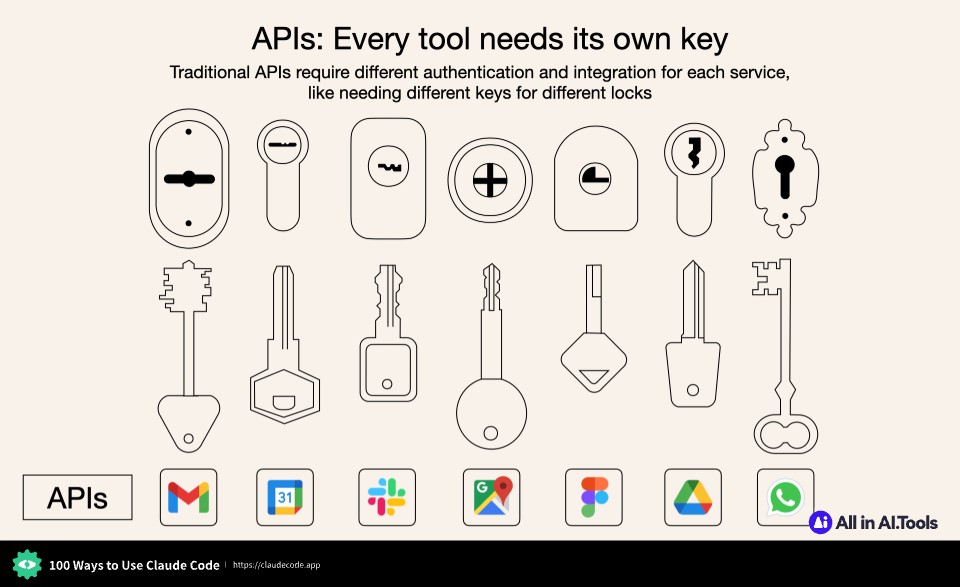Discover and integrate MCP servers to extend Claude's capabilities
A TypeScript implementation of a Model Context Protocol (MCP) server that integrates with PiAPI's API. PiAPI makes user able to generate media content with Midjourney/Flux/Kling/LumaLabs/Udio/Chrip/Trellis directly from Claude or any other MCP-compatible apps.
APISIX Model Context Protocol (MCP) server is used to bridge large language models (LLMs) with the APISIX Admin API.
Discover the most comprehensive and up-to-date collection of MCP servers in the market. This repository serves as a centralized hub, offering an extensive catalog of open-source and proprietary MCP servers, complete with features, documentation links, and contributors.
Tiny MCP server with cryptography tools, sufficient to establish end-to-end encryption between LLM agents
A Model Context Protocol (MCP) server that enables LLMs to interact directly with Couchbase databases. Query buckets, execute N1QL queries, and manage data seamlessly through natural language.
This MCP server provides email sending functionality using Protonmail's SMTP service. It allows both Claude Desktop and Cline VSCode extension to send emails on your behalf using your Protonmail credentials.
This project demonstrates how to use Cloudflare Browser Rendering to extract web content for LLM context. It includes experiments with the REST API and Workers Binding API, as well as an MCP server implementation that can be used to provide web context to LLMs.
This MCP server provides tools for interacting with Cloudflare Browser Rendering, allowing you to fetch and process web content for use as context in LLMs directly from Cline or Claude Desktop.
A Model Context Protocol (MCP) server for Malaysia Prayer Time data
This server creates a secure bridge between Claude and your computer's command-line functionality.
A Model Context Protocol Server for Home Assistant
A Model Context Protocol (MCP) server that provides tools for AI, allowing it to interact with the DataWorks Open API through a standardized interface. This implementation is based on the Aliyun Open API and enables AI agents to perform cloud resources operations seamlessly.
A Model Context Protocol (MCP) server implementation for remote memory bank management, inspired by Cline Memory Bank.
Sort files in downloads folder in mac os by type
An MCP for telegram to integrate with Claude desktop.
A lightweight MCP server for processing, editing, and interacting with PDF, Word, Excel, and CSV documents.
Connect APIs, remarkably fast. Free for developers.
solana mcp sever to enable solana rpc methods
这是一个基于 [ALAPI](https://www.alapi.cn) 的 MCP (Model Control Protocol) 服务器实现,可以通过MCP协议直接调用ALAPI的接口
Tools for seamless integration of different systems and services.
Cloud infrastructure and deployment management tools.
AI-powered tools for creative design workflows across 3D and 2D mediums.
AI-powered tools for product development, design review, and performance monitoring.
Tools for monitoring, analytics, and operational efficiency.


Explore Claude Cowork, Anthropic's groundbreaking AI agent built on Claude Code foundations. Discover how it enables file access, document creation, and task automation for everyone—not just developers. Learn how it integrates with MCP servers and extends Claude Code capabilities.
Explore the major [Claude code](https://claudecode.app) 2.1.1 update featuring 109 CLI improvements, automatic hot reload for skills, sub-agent execution, enhanced security, performance optimizations, and smarter prompt behavior. Learn about all the new features and improvements.
Master the art of prompting Claude with Anthropic official guide. Learn 10 proven strategies to 10x your Claude Opus and Sonnet 4.5 performance. Discover how better prompts lead to better results with practical examples and real-world applications.
Deep dive into sophisticated SSH workflows for Claude Code power users. Learn zero-friction authentication, session management, and advanced techniques that transform your vibe coding experience.
MCP (Model Context Protocol) is an open protocol that standardizes how applications provide context to LLMs. Think of MCP like a USB-C port for AI applications, providing a standardized way to connect AI models to different data sources and tools.
MCP Servers are lightweight programs that expose specific capabilities through the standardized Model Context Protocol. They act as bridges between LLMs like Claude and various data sources or services, allowing secure access to files, databases, APIs, and other resources.
MCP Servers follow a client-server architecture where a host application (like Claude Desktop) connects to multiple servers. Each server provides specific functionality through standardized endpoints and protocols, enabling Claude to access data and perform actions through the standardized protocol.
Yes, MCP Servers are designed with security in mind. They run locally with explicit configuration and permissions, require user approval for actions, and include built-in security features to prevent unauthorized access and ensure data privacy.